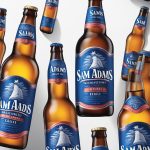When it comes to brewing beer, there’s no substitute for hands-on experience and expert guidance. That’s why brewing classes are a fantastic way to learn the ins and outs of the brewing process, experiment with different ingredients, and refine your brewing skills. Having personally attended several brewing classes, I can confidently say that they have been invaluable in my own journey as a homebrewer. In this article, I’ll be sharing some of the best brewing classes available, based on my own experiences and recommendations from fellow beer enthusiasts.
1. The Brewer’s Apprentice
The Brewer’s Apprentice offers a comprehensive brewing class that covers everything from the basics to advanced techniques. Led by experienced brewers, this class provides hands-on instruction in a small group setting, allowing for personalized attention and guidance. During the class, you’ll learn about malt selection, hop utilization, yeast propagation, and fermentation control. The Brewer’s Apprentice also offers a variety of specialty classes such as barrel-aging, sour beer brewing, and recipe formulation. If you’re a beginner looking to learn the fundamentals or an experienced brewer seeking to expand your knowledge, The Brewer’s Apprentice has you covered.
2. The Siebel Institute
For those looking for a more in-depth brewing education, The Siebel Institute is a world-renowned brewing school with a long history of producing industry professionals. Their comprehensive brewing courses cover a wide range of topics, including raw materials, brewing science, quality control, and sensory analysis. With state-of-the-art facilities and experienced instructors, The Siebel Institute provides a rigorous and immersive learning experience. Whether you’re aspiring to become a professional brewer or simply want to enhance your brewing skills, The Siebel Institute offers courses that cater to all levels of experience.
3. Master Brewers Association of the Americas (MBAA)
The Master Brewers Association of the Americas (MBAA) offers a variety of brewing courses designed for both homebrewers and industry professionals. Their courses cover a wide range of topics, including brewing fundamentals, recipe development, quality assurance, and flavor analysis. One standout feature of MBAA’s courses is the opportunity to network with experienced brewers and industry experts, allowing you to learn from the best in the business. Whether you’re looking to improve your homebrewing skills or advance your career in the brewing industry, MBAA’s courses provide a solid foundation.
4. Local Homebrew Supply Stores
If you’re looking for a more casual and affordable option, consider checking out your local homebrew supply store. Many of these stores offer introductory brewing classes that cover the basics of brewing, equipment setup, and recipe formulation. While these classes may not provide the same level of depth and expertise as the previous options, they offer a great starting point for beginners and provide a supportive community of fellow homebrewers. Plus, you’ll have the opportunity to purchase brewing ingredients and equipment right at the store, making it convenient to get started on your brewing journey.
In conclusion, brewing classes are a fantastic way to enhance your brewing skills and knowledge. Whether you choose a comprehensive course at The Brewer’s Apprentice or The Siebel Institute, or opt for a more casual class at your local homebrew supply store, there’s always something new to learn in the world of brewing. So, don’t be afraid to get hands-on, experiment with different ingredients, and join the vibrant community of beer enthusiasts. Cheers!







